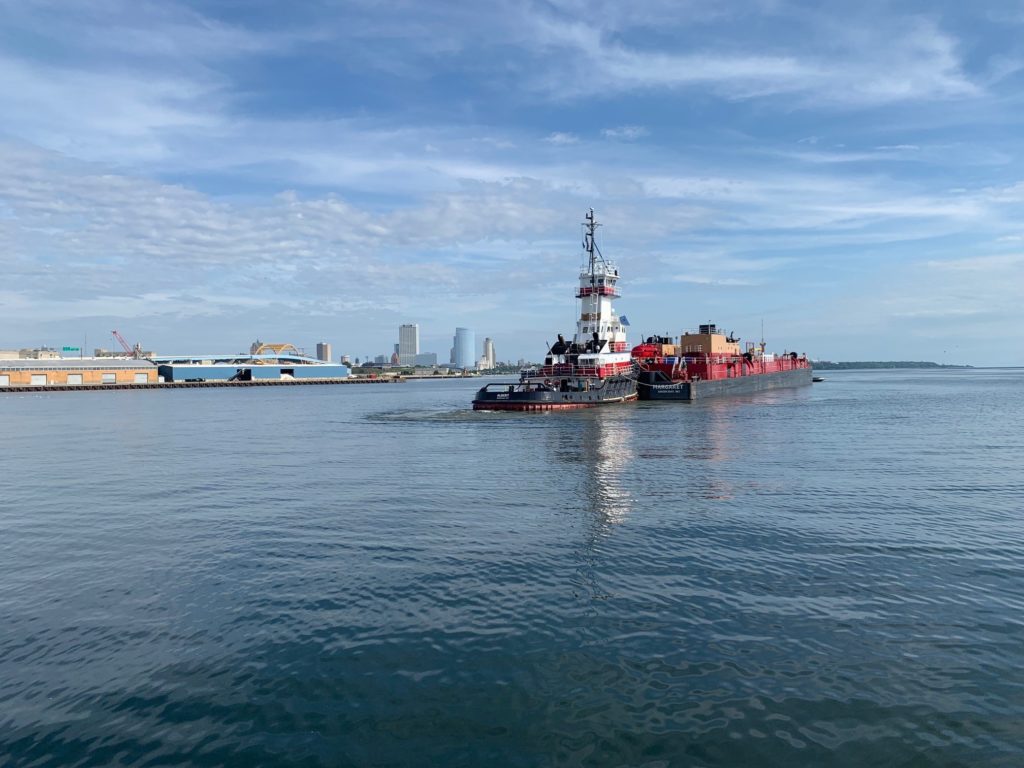State News: Farmers’ Groups Agree with Evers’ Calls to End Trade War
- Share
- Tweet
- Pin
- Share
Several Wisconsin farmers’ groups say they agree with Gov. Tony Evers’ call for the Trump administration to end the country’s trade war with China. Evers sent a letter to President Donald Trump on Monday calling for the administration to stop the “unnecessary trade war” with trading partners such as China. Evers also referenced what he said is the negative impact that the president’s statements on Twitter have had on farmers.
Kara O’Connor, government-relations director for the Wisconsin Farmers Union, said the letter echoes a sentiment she’s heard consistently from farmers.
“They want to receive a fair price in the marketplace and not from government subsidies,” O’Connor said.
Aaron Stauffacher, associate director of government affairs for Edge Dairy Farmer Cooperative, said some of his members support the reasons behind the trade strategy while others just want the policy to end.
O’Connor said the ag industry needs to address overproduction in the industry for prices to stay at a profitable level. She said Congress could help by adopting stricter regulations about who is eligible for federal subsidies.
Evers: Transportation Grants Will Be Distributed Fairly
Gov. Tony Evers says transportation-grant funding will be distributed equitably among the state’s cities and towns. In July, the governor used his line-item veto power to create a $75 million grant program in which local governments will compete for transit funding beyond the funding boosts included elsewhere in the state budget. The state Department of Transportation will administer those grants.
“We will get the money out to municipalities and cities as quickly as possible, [and we’ll] make good judgments,” Evers said. “But at the end of the day, the professionals exist at the [state] Department of Transportation, and we want to make sure that they are involved in making the decision.”
The program has received support from the Wisconsin County Highway Association, the League of Wisconsin Municipalities and the Wisconsin Towns Association.
Fitzgerald: ‘I Don’t Have the Answer’ on Preventing Mass Shootings
The Republican leader of the state Senate said Tuesday he doesn’t know how states can curb mass shootings and downplayed the chances of two proposals from Wisconsin Democrats aimed at doing so.
Senate Majority Leader Scott Fitzgerald (R-Juneau) said lawmakers have been unable to come up with effective ways to prevent mass shootings.
“I don’t have the answer,” he said. “I think if I had the answer – or any legislator had a clear answer to this issue – we would have already implemented it. It’s frustrating, I think, because every time one of these incidents happen, we kind of wring our hands and say, ‘What can we do? What should we do?’ and we haven’t been able to come up with that yet.”
Democratic state lawmakers have pushed a “red-flag law” and expanded background checks in Wisconsin.
Under red-flag laws, law-enforcement officers who are notified by concerned family or friends can petition a judge to temporarily revoke a person’s right to buy, own or carry weapons.
Fitzgerald also said that another proposal from Democratic lawmakers to expand background checks to online and gun-show sales would violate Second Amendment rights.
“I know my constituency is not going to go for that,” Fitzgerald said.

The tug/barge Albert/Margaret exports 20,000 tons of Wisconsin-produced ethanol from Port Milwaukee to Québec on Aug. 11. Port Milwaukee’s liquid bulk pier re-entered service in 2018 following a comprehensive refurbishment. Photo courtesy of Port Milwaukee.
Port Milwaukee Pursuing Formal Partnership with Québec
The Port of Milwaukee and the provincial government of Québec are exploring opportunities to grow international trade through a partnership that could bring economic benefits to the state.
The port already has an ongoing, informal trade relationship with Québec. The two have commercial operations together now: Port Milwaukee’s cargo stevedore is based in Montréal, and several shipping companies based in Québec also make stops at Port Milwaukee. But the port now wants a more formal, binational trade agreement.
Port Milwaukee Director Adam Schlicht said the port brings in more than $100 million in shipping activity each year, and a more formal relationship could encourage international trade between Wisconsin and other Canadian ports.
“Now the concept again is very much in its infancy,” Schlicht said, “but what we do know is that should we proceed with this concept, hopefully it goes a long way in providing an opportunity, a catalytic opportunity for furthering trade.”
Schlicht said the port plans to schedule partnership initiatives in 2020.
Indiana and Québec have a maritime agreement that the Port of Milwaukee plans to replicate.
Barron County Study to Address Housing Shortage
A preview of a Barron County housing study shows the City of Barron needs more than 170 homes and 118 apartment units built in order to meet the city’s housing demand. The study is the latest effort to encourage development to help employers fill hundreds of jobs throughout the county.
Barron County Economic Development Corporation Director Dave Armstrong said there have been between 400 and 600 job openings throughout the county during the past two years.
“So, then we started looking at what is the correlation between job openings and housing,” Armstrong said. “Well, there’s a huge correlation.”
The report is still being finalized, but a “housing snapshot” of the City of Barron shows it had zero vacant houses for sale as of July despite an anticipated need for 176 additional single-family homes by 2020. The study suggests that an additional 118 apartment units will also be needed.
Armstrong said a Barron County Economic Development Corporation survey of workers found that those interested in buying homes preferred spending between $90,000 and $170,000.
“Can builders build a $150,000 house? Well, we found absolutely not with land costs,” said Armstrong. “So how do we take land costs out of the equation? Let’s think out of the box a little bit.”
Armstrong said city and county officials are discussing ways to make it easier for developers to build new subdivisions while keeping prices within the range of what most families can afford. One potential option, he said, is creating a loan program in which funds used to buy property are repaid when houses are sold. The final housing-study report, which is nearing completion, will include tools that local governments can use to spur development of affordable starter homes.
Overall, Wisconsin had an inventory of 20,000 fewer homes for sale in June compared with housing data from June 2015, according to the Wisconsin Realtors Association. During that four-year period, the median price of homes in the state increased by 21 percent.
Wisconsin Public Radio, © Copyright 2019, Board of Regents of the University of Wisconsin System and Wisconsin Educational Communications Board.

